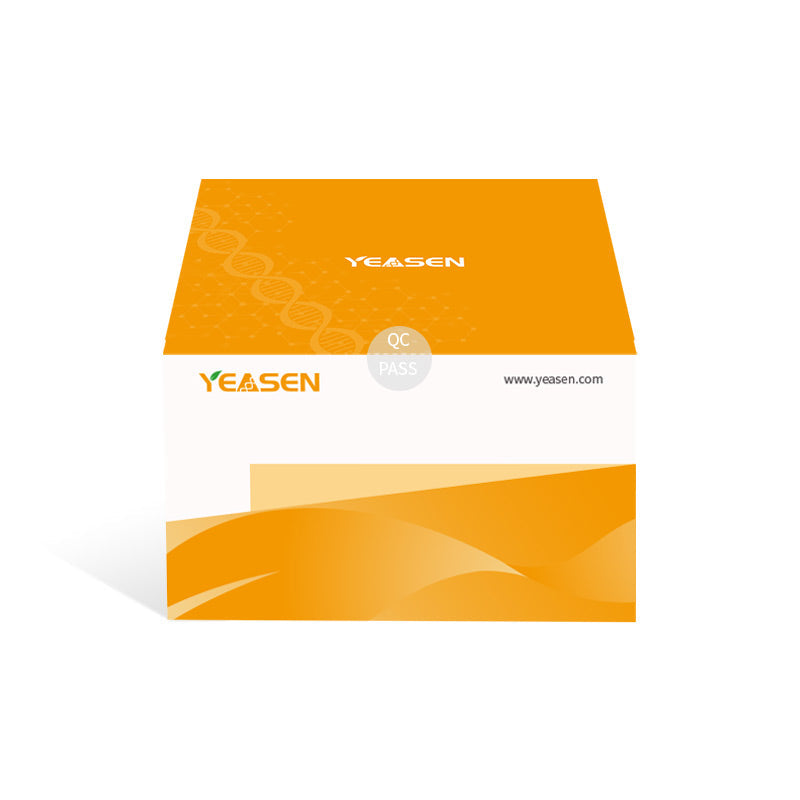Beschrijving
Extreme Thermostable Single-Stranded DNA Binding Protein (ET SSB) is a sequence-independent single-stranded DNA (ssDNA)-binding protein that does not bind RNA or double-stranded DNA (dsDNA). It primarily binds to ssDNA regions generated as helicases advance along the replication fork, thereby preventing newly formed ssDNA from reannealing into dsDNA or being degraded by nucleases. Upon binding to ssDNA, ET SSB destabilizes helical dimers, facilitating easier access of DNA polymerase to its substrate and thereby enhancing the catalytic activity of DNA polymerase and improving amplification efficiency in applications such as PCR.
ET SSB is derived from an extremely thermophilic microorganism and retains full activity even after incubation at 95°C for 60 minutes. Thus, it is suitable for reactions requiring extremely high temperatures, such as nucleic acid amplification and sequencing. ET SSB can be added during PCR to stabilize denatured DNA or used as a PCR additive to protect ssDNA from nuclease digestion. Studies have shown that SSB improves PCR performance with complex templates by directly or indirectly acting on the polymerase, enhancing strand displacement activity and increasing affinity for primer-template complexes.
Features
High purity (≥95%) – minimizes protein interference.
Ultra-low host gDNA (<1 copy/2.5 μg) – reduces background noise.
Heat-stable – fully active after 95°C for 60 min.
Nuclease-free – no exonuclease, nickase, or RNase contamination.
Broad Buffer Compatibility – works in most PCR and sequencing buffers.
Components
|
Name |
14564ES50 |
14564ES70 |
|
Extreme Thermostable Single-Strand DNA Binding Protein, ET SSB (0.5 mg/mL) |
100 µL |
400 µL |
Storage
This product should be stored at -25~-15℃ for 2 years.
Application
PCR amplication;
Figures
1.Thermal Stability

Figure 1. Thermal Stability of Yeasen ET SSB
ET SSB at different amounts (2 μg and 1 μg) was incubated at 95°C for 60 min or left untreated, then tested for binding to ssDNA. Agarose gel electrophoresis showed that ET SSB retained comparable ssDNA-binding activity after heat treatment, demonstrating excellent high-temperature stability.
2. Nuclease-free – no exonuclease, nickase, or RNase contamination.

Figure 2. Assessment of Nuclease, Nicking Enzyme, and RNase Contamination in Yeasen ET SSB
Three batches of ET SSB were incubated with respective nucleic acid substrates and analyzed by agarose gel electrophoresis. No nuclease (1 μg), nicking enzyme (1 μg), or RNase (1 μg) activity was detected, confirming the preparation is free of nuclease contamination.
Documents:
Safety Data Sheet
Manuals
Betaling en beveiliging
Uw betalingsinformatie wordt veilig verwerkt. We slaan geen creditcardgegevens op en hebben geen toegang tot uw creditcardinformatie.
Navraag
Misschien vind je het ook leuk
FAQ
Het product is alleen bedoeld voor onderzoeksdoeleinden en is niet bedoeld voor therapeutisch of diagnostisch gebruik bij mensen of dieren. Producten en inhoud worden beschermd door patenten, handelsmerken en auteursrechten die eigendom zijn van
Voor bepaalde toepassingen zijn mogelijk aanvullende intellectuele eigendomsrechten van derden vereist.

